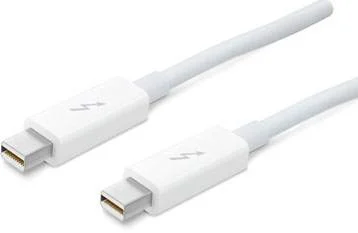Apple’s decision to include Intel’s Thunderbolt transfer protocol in its current MacBook lineup is likely to have a major impact on the future of USB 3.0.
Indeed, anonymous sources within the PC supply chain believe the 10Gbps protocol will “greatly [and negatively] affect” industry adoption of USB 3.0.

Although Intel insists Thunderbolt will peacefully co-exist with USB 3.0, sources claim Santa Clara is simply hedging its bets by adding USB 3.0 support to its next-gen chipset, codenamed “Ivy Bridge.”
“Intel’s strategy of adopting both technologies into its next generation products is to minimize the risks of placing all the eggs into one basket,” explained Monica Chen of DigiTimes.
“[As such], USB 3.0 technology currently seems like it will become a transitional product with Thunderbolt to become the finalized next-generation transmission technology.”
Formerly known as “Light Peak,” Thunderbolt boasts transfer speeds of 10 gigabits per second, which is twice as fast as what USB 3.0 has to offer.
The advanced protocol also features two bi-directional channels with transfer speeds up to 10Gbps each and delivers PCI Express directly to external high performance peripherals such as RAID arrays.
In addition, Thunderbolt I/O supports FireWire, USB consumer devices, Gigabit Ethernet networks, DisplayPort for high resolution displays, as wll as existing adapters for HDMI, DVI and VGA displays.
[Via DigiTimes and AppleInsider]






